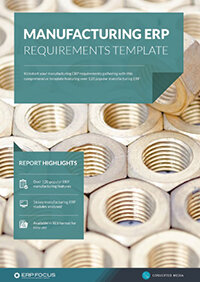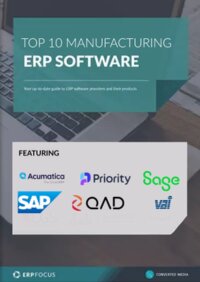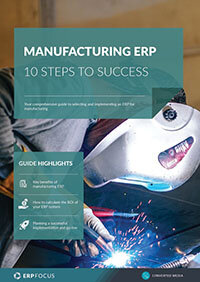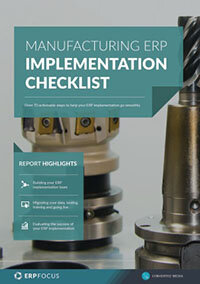Three overlooked manufacturing ERP requirements that cause project failure
Requirements for a manufacturing ERP include both new tools and capabilities as well as features that perform jobs that your current ERP is inadequate for. There are some manufacturing ERP requirements that are not often stated but perhaps should be. Here are three to get you started.
1. Means to increase productivity
Simply, this means getting more product out with fewer hours of production time or less material required. This is not the same as cost reduction which is often seen as a manufacturing ERP requirement. A new ERP might mean a lower-skilled worker can make a product, which could be a measure of financial productivity. But, if it still takes ten minutes per part, actual productivity is unchanged.
Your competitor uses the same tools and recruits personnel from the same labor pool. If your ERP helps, that competitor can get the same ERP they can regain their competitive position. An increase in your productivity is harder to match so your competitive advantage will last longer.
2. Ability to run on the resources you have
ERP or any improvement project a business undertakes requires resources to implement. Further resources are needed to train users and maintain the ERP. Why not make the use of your scarce resources a key manufacturing ERP requirement? Think about it. Two ERP systems are close in their capabilities, cost, and the value they will provide. But if one requires a team of 25 dedicated people and the other can be done with only the two people you can afford, which one should you choose? Your choice probably will not be so patent, but the fewer resources needed, the better.
3. A concrete budget and implementation timeframe
Why not make a well-defined implementation timeframe one of your key requirements? Your ERP vendor and the value-adding consultants who support the ERP implementation are the experts, while your expertise is in manufacturing. If they say your ERP will be fully implemented in ten months, make that a requirement and not just a moving target. You will have to dedicate the time and people they suggest even if you wish you could have some people back for another task. But if you provide the necessary resources on their schedule, then you should expect on time completion.
Every now and then we read about some business suing their ERP vendor because the software took too long to implement. Unless the time frame is explicitly in the agreement, that suit will likely lead nowhere. There is a chance the vendor will pad the amount to cover some contingencies, which might lead to a higher cost. But the chance those contingencies occur is still the same and now the burden is on the vendor, not your business. You might not get the exact terms requested, but asking for them will not hurt.
Free white paper

Manufacturing ERP requirements template
Over 120 critical manufacturing ERP features in one downloadable spreadsheet

Featured white papers
Related articles
-

Lean manufacturing with ERP: a basic guide
In the right circumstances, ERP is compatible with lean manufacturing principles...
-

Secret KPI: Why Your ERP Implementation Team Matters More Than Software
Learn how Godlan ensures successful ERP implementation for manufacturers with proven strategies &...
-

4 training tips for manufacturing ERP success
These four training tips will help your employees get the most out of your new manufacturing ERP ...




